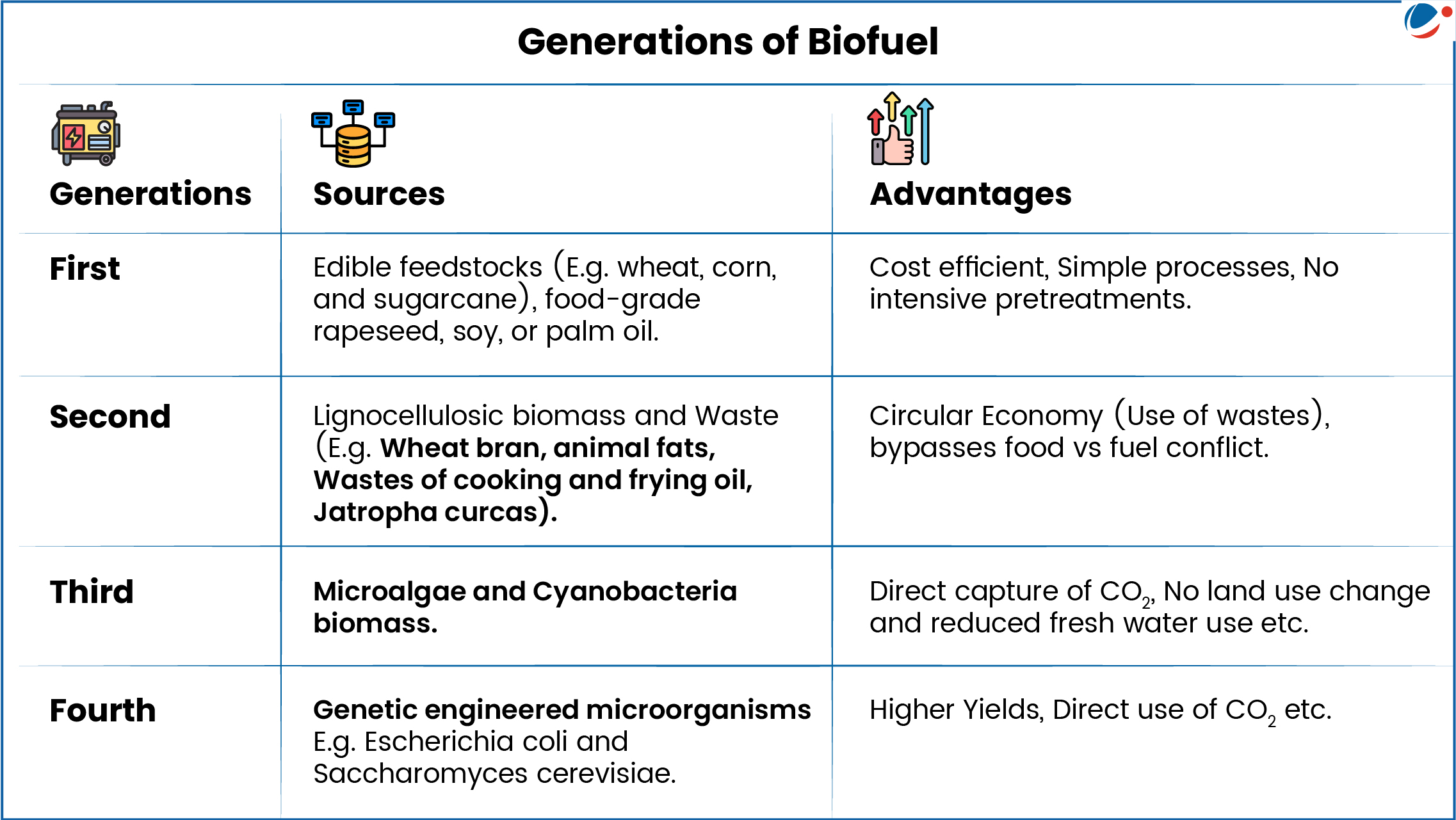The diversion of sugar to ethanol production will be periodically reviewed to ensure adequate domestic availability of sugar throughout the year.
- The National Policy on Biofuels 2018 permits a wider range of raw materials for ethanol production, including sugarcane juice, sugar beet, sweet sorghum, corn, cassava, damaged food grains (wheat, broken rice), rotten potatoes unfit for human consumption.
What are Biofuels?
- Biofuels are liquid or gaseous fuels primarily produced from biomass (renewable resources).
- They can be used in place of or in blend with, diesel, petrol or other fossil fuels for transport, stationary, portable and other applications. E.g. Ethanol, Compressed Bio Gas (CBG) etc.
- Blending of ethanol in petrol is promoted under the Ethanol Blended Petrol (EBP) programme.
- India achieved 20% ethanol blending in petrol.
- Advantages:-
- Cleaner Environment: One crore litre of E-10 saves around 20,000 tons of CO2 emissions.
- Reduce Import: Ethanol blending in petrol resulted in savings of >Rs.1,10,000 crore of foreign exchange in the last 10 years.
Generations of Biofuel








